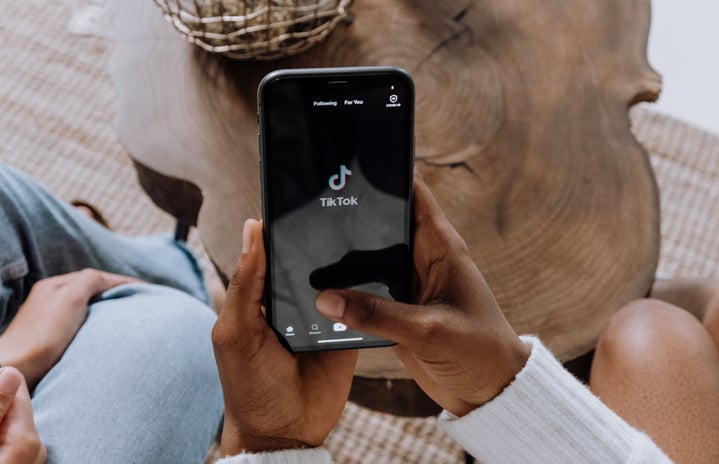We’ve all (hopefully) experienced what I am about to willfully describe for you.
You’re warm under a fuzzy blanket, the TV propped up in the corner of your bedroom or adjacent from the couch. The vibrant pictures of some random show or movie flash by, the color hitting the back wall behind your head. This restful place seemingly exists outside of normal expectations, where you have nothing to think about besides whatever meaningless episodic plot you’ve been staring at for half an hour. Then, it happens. A character makes a startlingly accurate or modern reference, and you’re forced to rectify the fact that they exist, hypothetically, at the very least, in the same world as you.
There’s something so jarring about hearing something recent or familiar captured in television. In my experience, these references typically fail to be timely or grounded; instead, they are seemingly thrown in on the show writer’s behalf to anchor their story to a particular time. However, most of the time, it ends up making the show feel outdated. Especially when characters start dabbing or using text abbreviations aloud (the cringiness of it all makes my stomach turn).
This phenomenon most recently occurred as I watched the first episode of “The Fall of The House of Usher,” a new Netflix show made by the same creators of “The Haunting of Hill House” and “Midnight Mass”. The show uses many of the same actors from its other successful casts to this new release. The particular reference came from Camille, portrayed by Kate Siegel, who brought up one of her siblings being obsessed with TikTok.
Of course, I am on TikTok. So is every other person you cross on the street – most of all younger people. I believe that’s a key motivator for show writing like this, to keep in touch with popular culture and, subsequently, draw in younger viewers. But as a younger viewer myself, such references do the complete opposite. All it does it remove me from the state of open-mindedness (i.e., being able to accept and absorb any potential absurdities that emerge from thriller/crime plots like this) and make me think more logistically about what is happening in the scene.
The idea that a character could be lounging around in sweats, scrolling through TikTok or Reels or reading misguided, existential Tweets (or whatever it is we’re calling those now), is not glamorous. This isn’t to say that media exists to be wholly glamorous; I mean instead that media, at least in TV and movies, is meant to exceed the day-to-day monotony. No one would really watch a show that just followed around an average person – there would be, for the most part, no depth. Even shows that seem to be altogether uneventful often use this subtlety to comment of social structures (ex. addiction, relationship issues, trauma, emotional distress, etc.).
Therefore, these offhanded references to modern-day events, whether it be to social media or celebrities, is unimportant and irrelevant to the story overall. They exist only to create a cheap connection between viewer and character, making the audience feel as though they are one in the same as the protagonist they’re watching. I, personally, enjoy feeling partially disconnected from the media I consume. Otherwise, I become strikingly aware of the commercialism behind media and their need to draw in as many eyes (or, in their minds, dollars) as possible.
Sometimes, it’s also just painful to watch.


